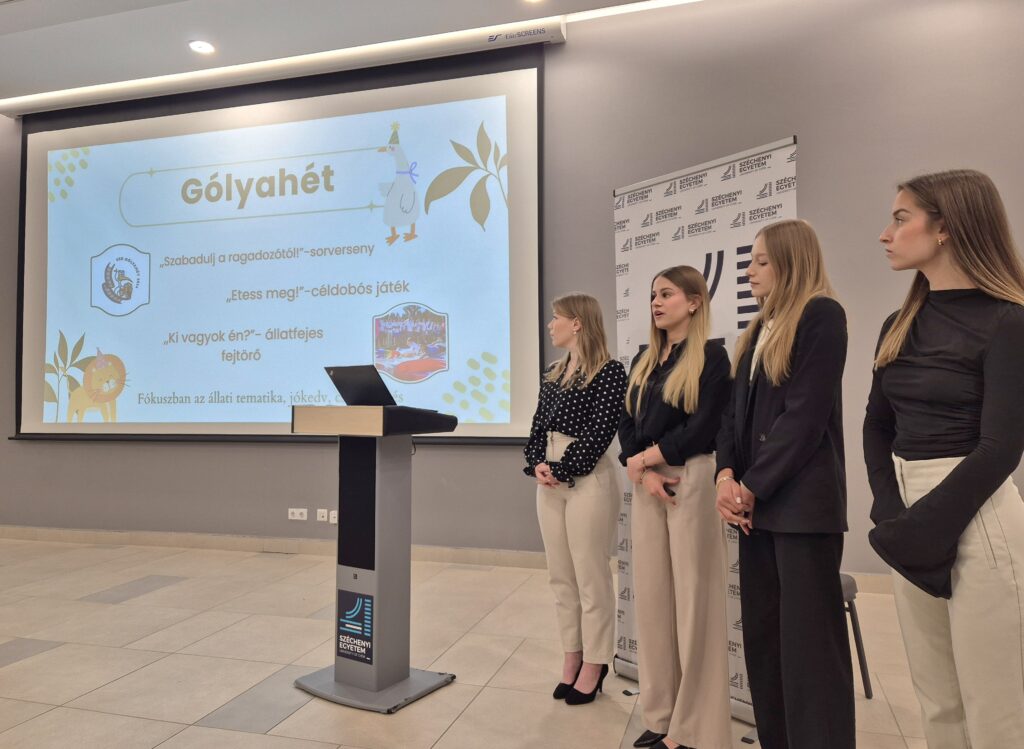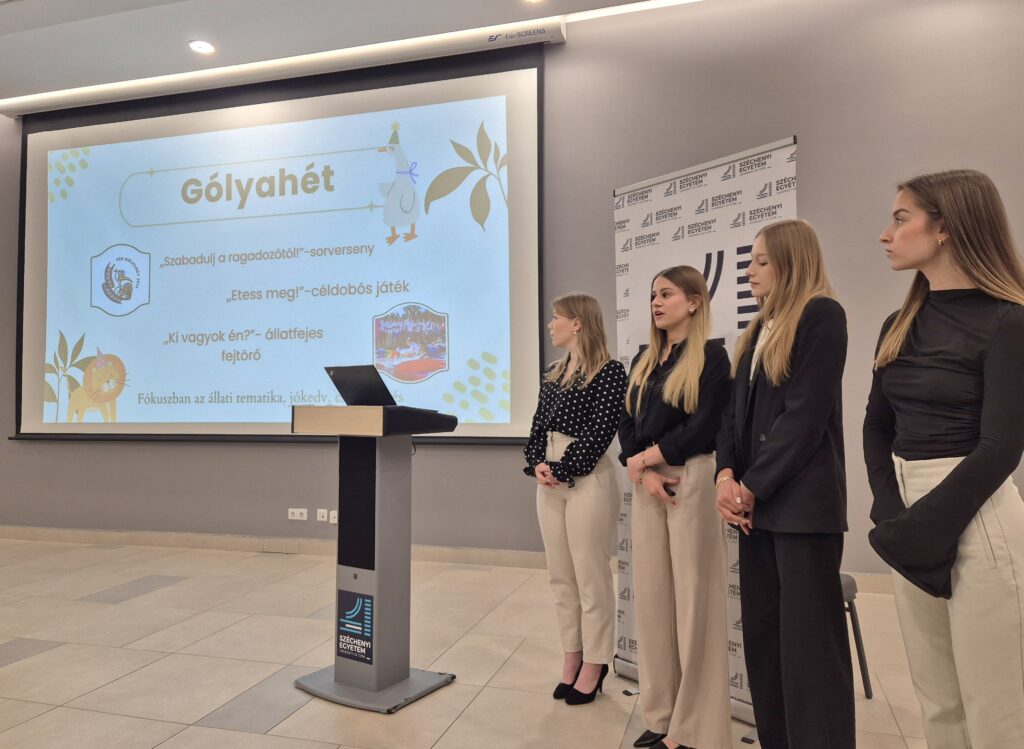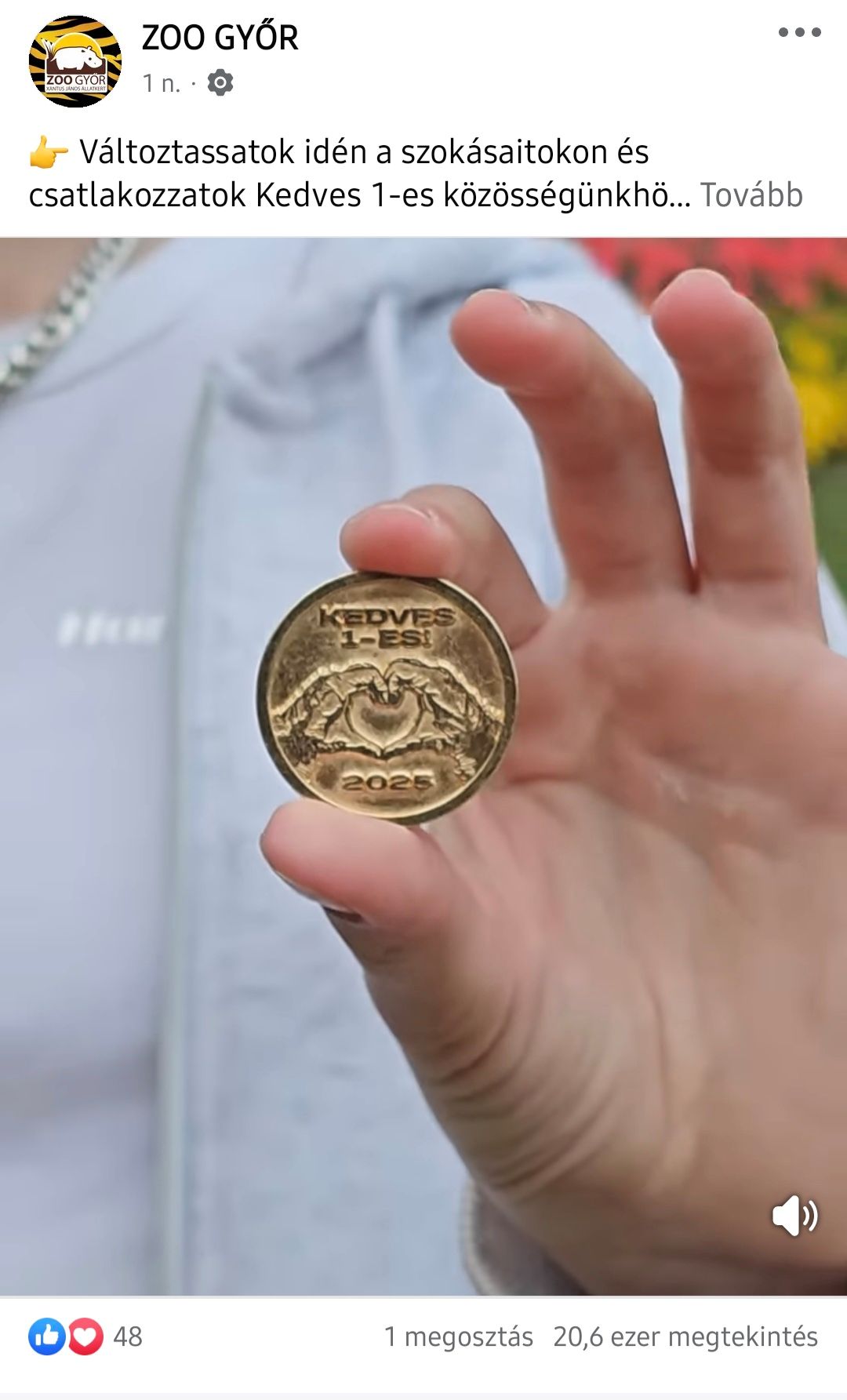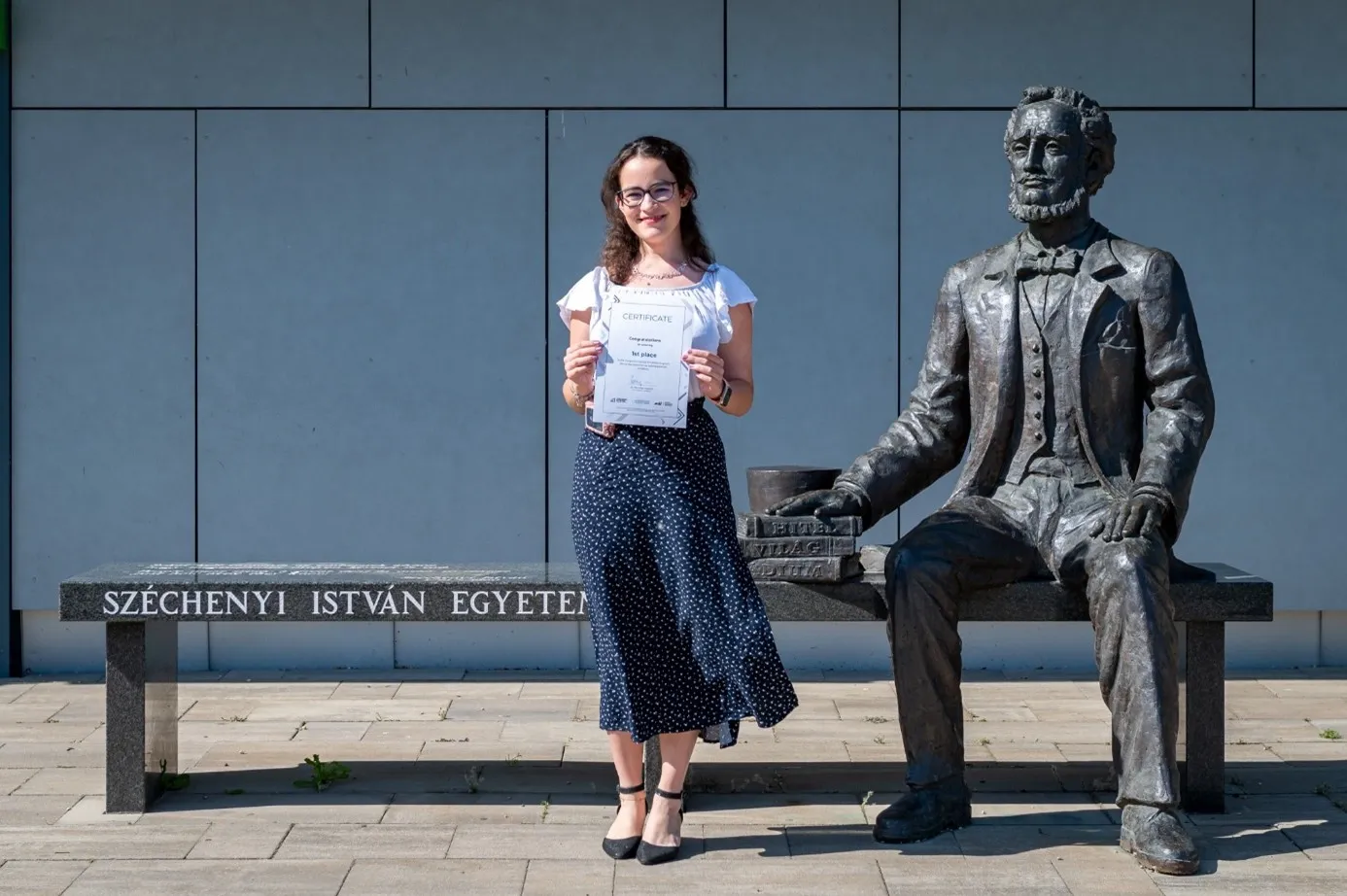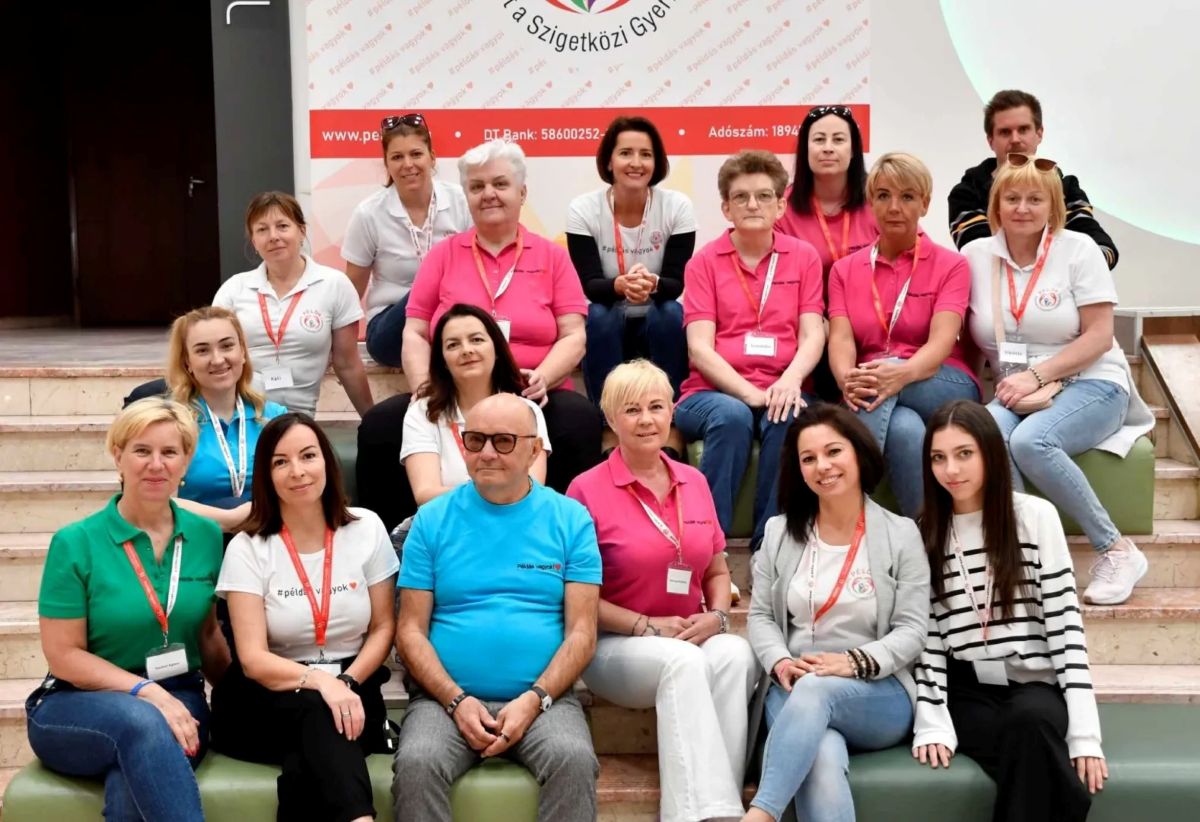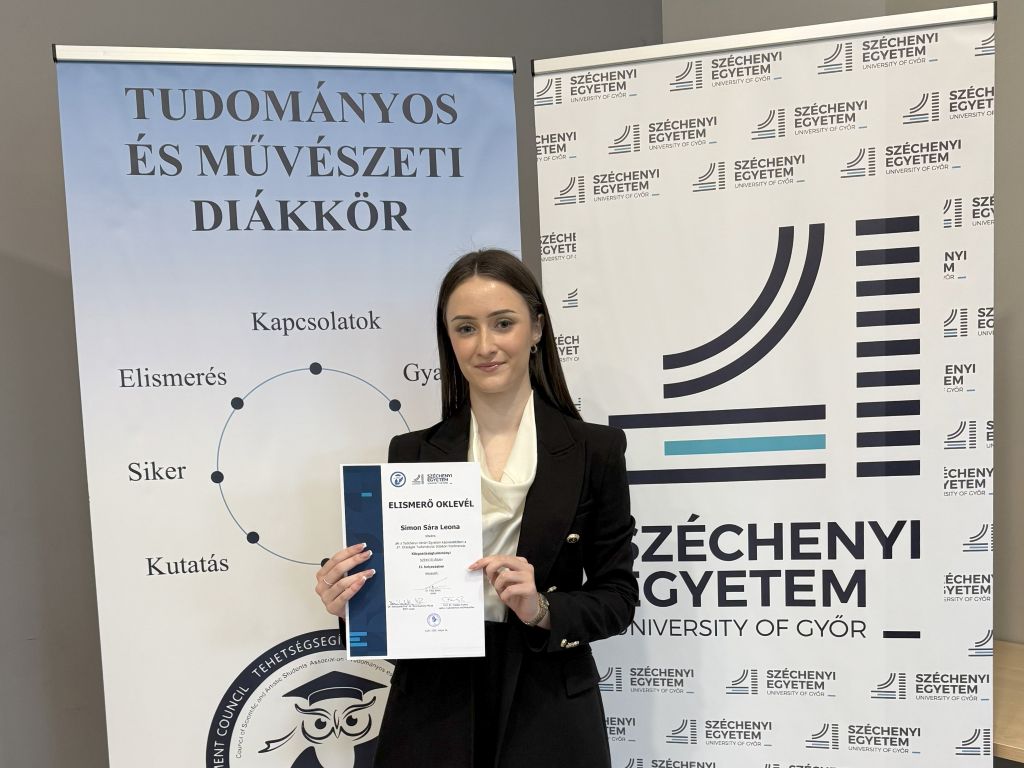Students majoring in Commerce and Marketing at Széchenyi István University developed nonprofit marketing solutions for the Xantus János Zoo in Győr as part of the course Nonprofit and Small Business Marketing.
The closing event occurred on May 5, 2025, where each team presented their results. During the presentations, representatives of the zoo highlighted that they plan to implement several of the proposals already this year.
What made the project special was that the students did not stop at proposing ideas—they carried several of them through to implementation:
- They created an activity book complete with a story and visual content,
- They shot and edited videos for social media (two videos have already been published on the zoo’s social media platforms
- They designed station-based games,
- They proposed ideas for sustainable gifts,
- They developed interactive programs not only for the zoo grounds but for external locations as well,
- They conducted valuable primary research on visitor knowledge and attitudes, which could lay the groundwork for future developments.
Special attention was given to educational content targeting different age groups, including quizzes and playful learning ideas.
Active collaborations also formed during the project: students participated in workshops, and several teams worked to support the communication of the Győr Animal Control Facility associated with the zoo. One team developed a complete Instagram communication strategy for the facility, including specific post ideas and visual suggestions.
“Digital Wilderness” Student Project – Kautz Gyula Faculty of Business and Economics SZE
The topic of social responsibility was also addressed: students developed proposals for awareness-raising programs outside the zoo, aimed at increasing consciousness about animal welfare and nature conservation.
A total of 24 students participated in the project, divided into 5 teams, working with regular weekly consultations. The teams were mentored by Dr. Nikolett Gyurián Nagy and supported by Zoltán Tóth, the zoo’s communications and marketing officer, who helped students turn their theoretical knowledge into practical, actionable concepts.
The “Digital Wilderness” project is an excellent example of how the university can create learning opportunities in real-world settings with real partners—transforming the learning process into shared value creation.
